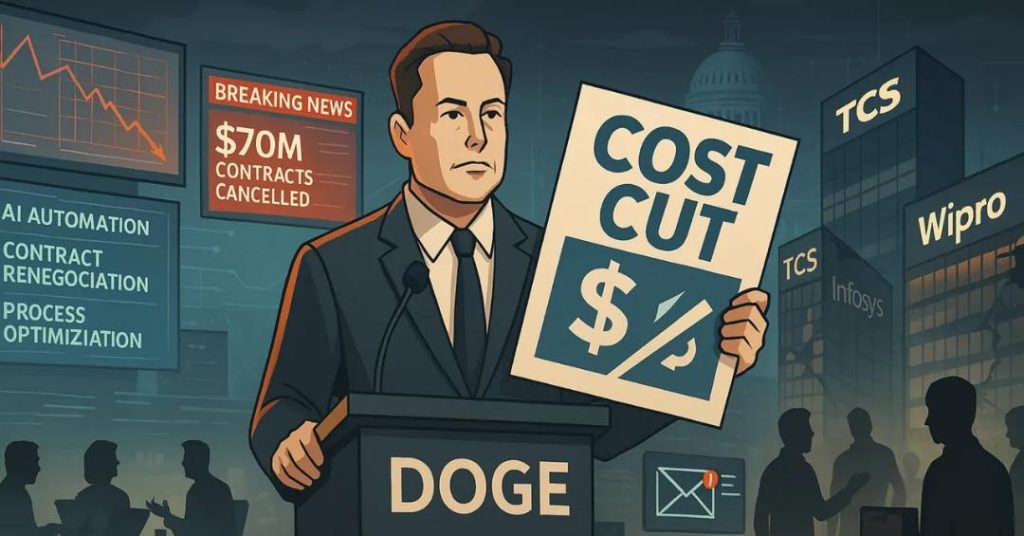
How is Elon Musk’s DOGE Reshaping Tech?
Elon Musk’s aggressive cost-cutting measures at DOGE, his electric car manufacturing subsidiary, have sent shockwaves throughout the tech industry. The company’s decision to slash government deals and reduce its workforce has put immense pressure on other firms to rethink their contracts, layoffs, and innovation strategies. Even major IT players like TCS and Infosys may feel the heat as they navigate this shifting landscape.
In recent news, DOGE’s cost-cutting efforts have been making headlines, with reports suggesting that the company is looking to reduce its workforce by as much as 10%. This move is seen as a direct response to the economic downturn and rising production costs. However, the impact of DOGE’s cost-cutting measures is not limited to the company itself, but is having a ripple effect throughout the entire tech industry.
One of the most significant impacts of DOGE’s cost-cutting measures is the pressure it is placing on other tech companies to rethink their own contracts and agreements. With government deals being slashed, companies that rely heavily on these contracts are facing significant financial uncertainty. This is particularly true for IT majors like TCS and Infosys, which have traditionally relied on government contracts to drive their business.
In response to DOGE’s cost-cutting measures, other tech companies are being forced to re-evaluate their own cost structures and look for ways to reduce expenses without sacrificing innovation and quality. This may involve implementing cost-cutting measures such as layoffs, reducing benefits, and streamlining operations. However, companies must be careful not to cut too deeply, as this can have a negative impact on morale and productivity.
Another area where DOGE’s cost-cutting measures are having an impact is in the area of innovation. With the pressure to reduce costs, companies are being forced to think creatively and find new ways to innovate without breaking the bank. This may involve investing in new technologies, such as artificial intelligence and automation, which can help to reduce costs and increase efficiency.
However, innovation is not just about cutting costs, it’s also about staying ahead of the competition and driving growth. Companies that are able to innovate and stay ahead of the curve will be better positioned to succeed in this shifting landscape. This is particularly true for companies that are looking to expand into new markets and sectors, as innovation can be a key driver of growth and success.
Clear communication is also critical in this shifting landscape. Companies must be transparent and open with their employees, customers, and stakeholders about the changes they are making and the reasons behind them. This can help to build trust and confidence, and can also help to mitigate the negative impact of cost-cutting measures.
In conclusion, Elon Musk’s DOGE is having a significant impact on the tech industry, forcing companies to rethink their contracts, layoffs, and innovation strategies. With government deals being slashed and the pressure to reduce costs, companies must be able to balance cost-efficiency with innovation and automation in order to survive this shifting landscape.
As the tech industry continues to evolve and change, companies must be prepared to adapt and respond to new challenges and opportunities. This may involve investing in new technologies, streamlining operations, and finding new ways to innovate and drive growth. By staying ahead of the curve and communicating clearly with their stakeholders, companies can position themselves for success and thrive in this new landscape.






